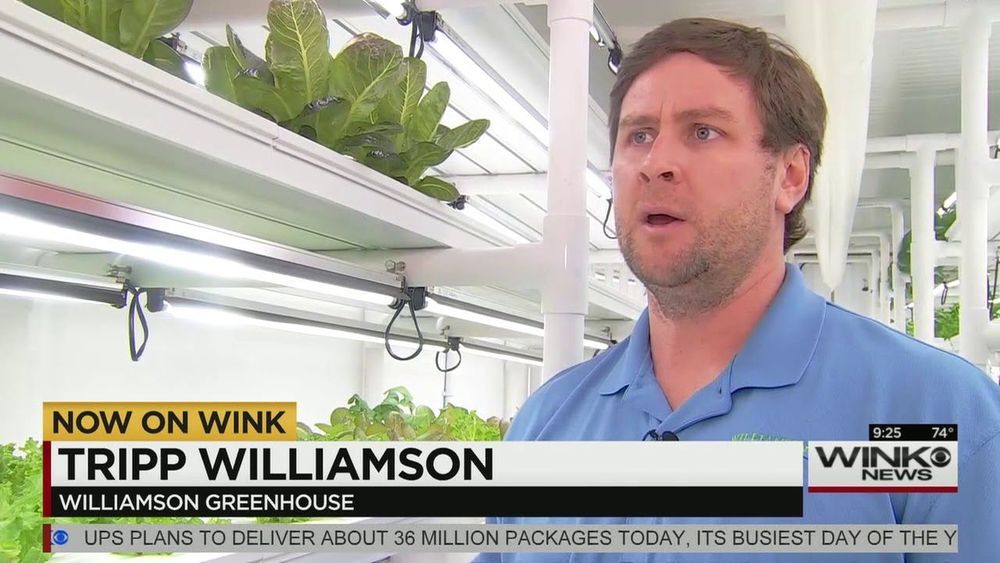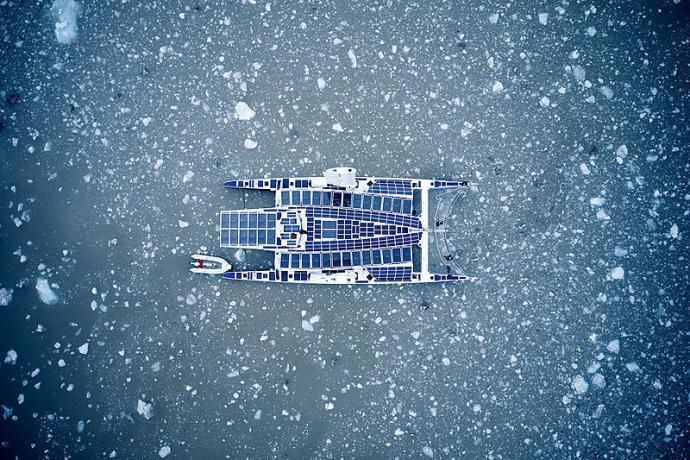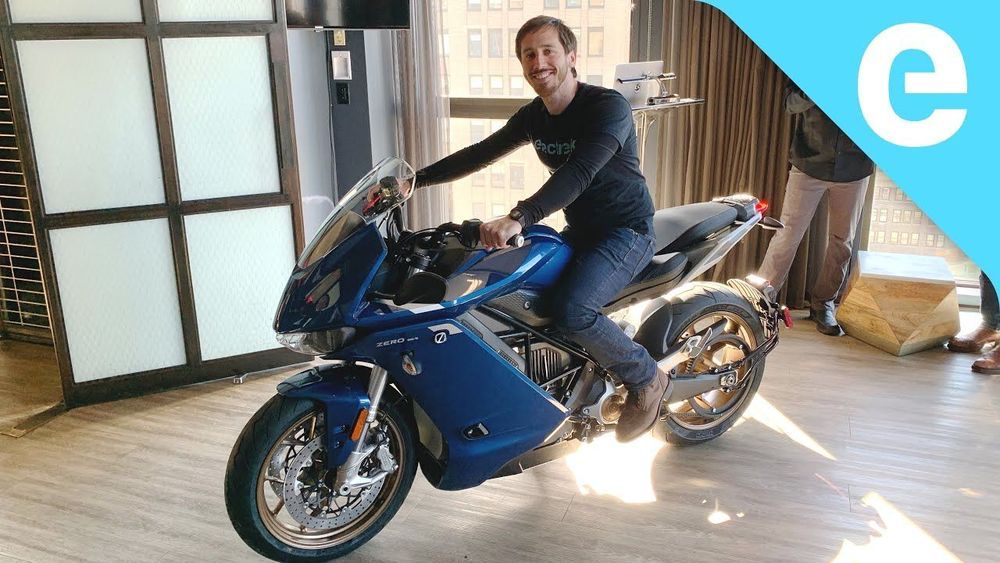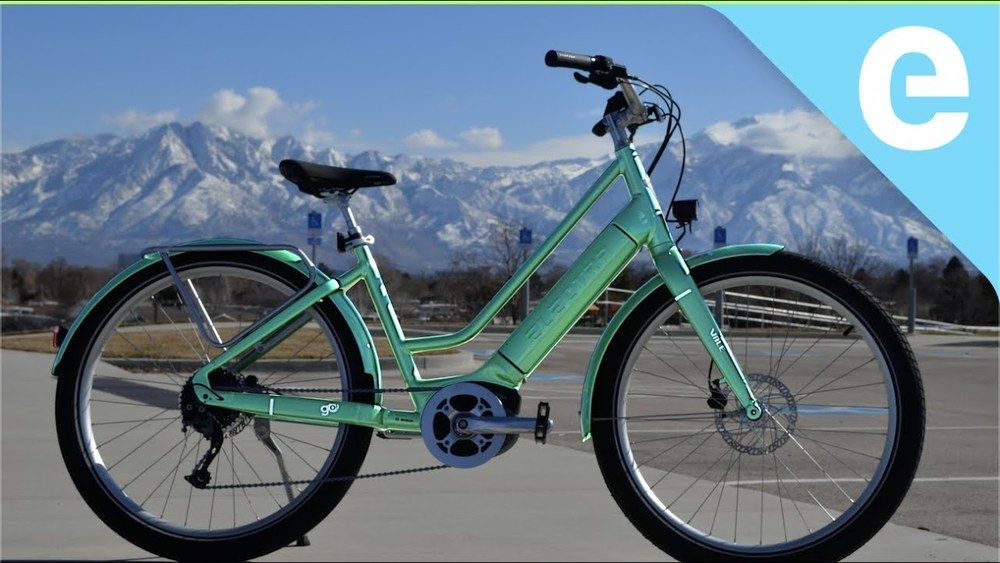Mar 1, 2020
CropBox: A Farm in a Shipping Container
Posted by Brent Ellman in categories: food, sustainability
CropBox is a shipping container farm system featuring the latest technology in precision farming.

CropBox is a shipping container farm system featuring the latest technology in precision farming.
The world’s first self-sufficient sea vessel, Energy Observer, is due to leave her home port of Saint-Malo in Brittany, France, over the next few days on the first leg of a global voyage to test and promote renewable energy technologies.
This isn’t just any yacht though, it uses nothing but renewable energy sources to run. Specifically, it produces hydrogen from seawater with zero CO2 emissions and zero fine particles.

In the next decade, designers and consumers will need to radically shift their perspectives on value and commit to a circular economy based on recycling, upcycling, and repurposing what already exists.
At 35 meters, the wingspan of the new BAE Systems aircraft equals that of a Boeing 737, yet the plane weighs in at just 150 kilograms, including a 15 kg payload. The unmanned plane, dubbed the PHASA-35 (Persistent High-Altitude Solar Aircraft), made its maiden voyage on 10 February at the Royal Australian Air Force Woomera Test Range in South Australia.
“It flew for just under an hour—enough time to successfully test its aerodynamics, autopilot system, and maneuverability,” says Phil Varty, business development leader of emerging products at BAE Systems. “We’d previously tested other sub-systems such as the flight control system in smaller models of the plane in the U.K. and Australia, so we’d taken much of the risk out of the craft before the test flight.”
The prototype aircraft uses gallium arsenide–based triple-junction solar cell panels manufactured by MicroLink Devices in Niles, Ill. MicroLink claims an energy conversion efficiency of 31 percent for these specialist panels.

Last year we ogled the Newron EV-1 electric motorcycle upon its debut, but questioned whether it would ever make it to market. As of today though, the company has ended speculation by opening pre-orders for the highly unique, wooden-bodied electric motorcycle.
Plastic has become ubiquitous in our home and work lives over the past 50 years. It is pliable, durable, easy to make, and hard to break. Plastic may be convenient and useful, but it also won’t break down naturally, which makes it a long-lasting pollutant. A recent study published in Science Advances found that humans have produced 8,300 million metric tons of plastic to date, which is 25,000 times the weight of the Empire State Building. Seventy nine percent of that has ended up in landfills or the ocean. If we continue making plastic at our current rate, that figure will reach 12,000 metric tons by the year 2050. Plastic pollutants are showing up in drinking water all over the world as well as in food products, like beer. We have a serious problem.
Humans are “addicted” to plastic, says Gavin McIntyre, chief scientist and co-founder of Ecovative, a company aiming to reduce our dependence on plastic and other toxic or non-decomposable materials by making biodegradable alternatives. For several years, Ecovative has been manufacturing eco-friendly packaging supplies, and has just received a grant from the Environmental Protection Agency to further develop its new product, mResin, an alternative to the harmful adhesives found in most paneling and insulation.
Ecovative products, unlike most synthetic plastics that are made from crude oil, are grown from mycelium—networks of fungal or mushroom roots. In nature, fungi break down waste, such as old leaves, dead plants, and pieces of wood, and use it to propagate. Ecovative harnesses this natural process and grows the mycelium into various shapes and structures, from pieces of furniture to packaging materials like MycoFoam, its trademarked Styrofoam substitute.

CEO Elon Musk congratulated the Tesla team after the Model 3 got 350 miles of range on a single charge in a new test on range mode.
Officially, Tesla Model 3 Long Range had a range of 310 miles on a single charge, but Tesla has found some optimizations in recent months – leading to an increase of EPA-rated range to 322 miles.
Continue reading “Tesla Model 3 gets 350-mile in new ‘long range mode’ test” »
As a teenage boy, Elon Musk felt a “personal obligation” for the fate of mankind, according to the book “Elon Musk: Tesla, SpaceX, and the Quest for a Fantastic Future” by Ashlee Vance.
Musk’s love of books and the lessons he took from them inspired him to create “cleaner energy technology or [build] spaceships to extend the human species’s reach” in the future, according to Vance.
One set of those books Musk still recommends today: the seven-book “Foundation” science fiction series by scientist and author Isaac Asimov.
Current-day EVs generally use graphite anode batteries, which tend to provide shorter range compared to their gas-guzzling brethren, according to the researchers. Silicon anodes, on the other hand, have ten times the capacity — but are much worse at holding their capacity over time.
Frying Batteries
The team, led by Hun-Gi Jung, came up with a way to keep these silicon anodes stable by using “a simple thermal process used for frying food,” according to a statement, which involves the use of water, oil, and starch.
